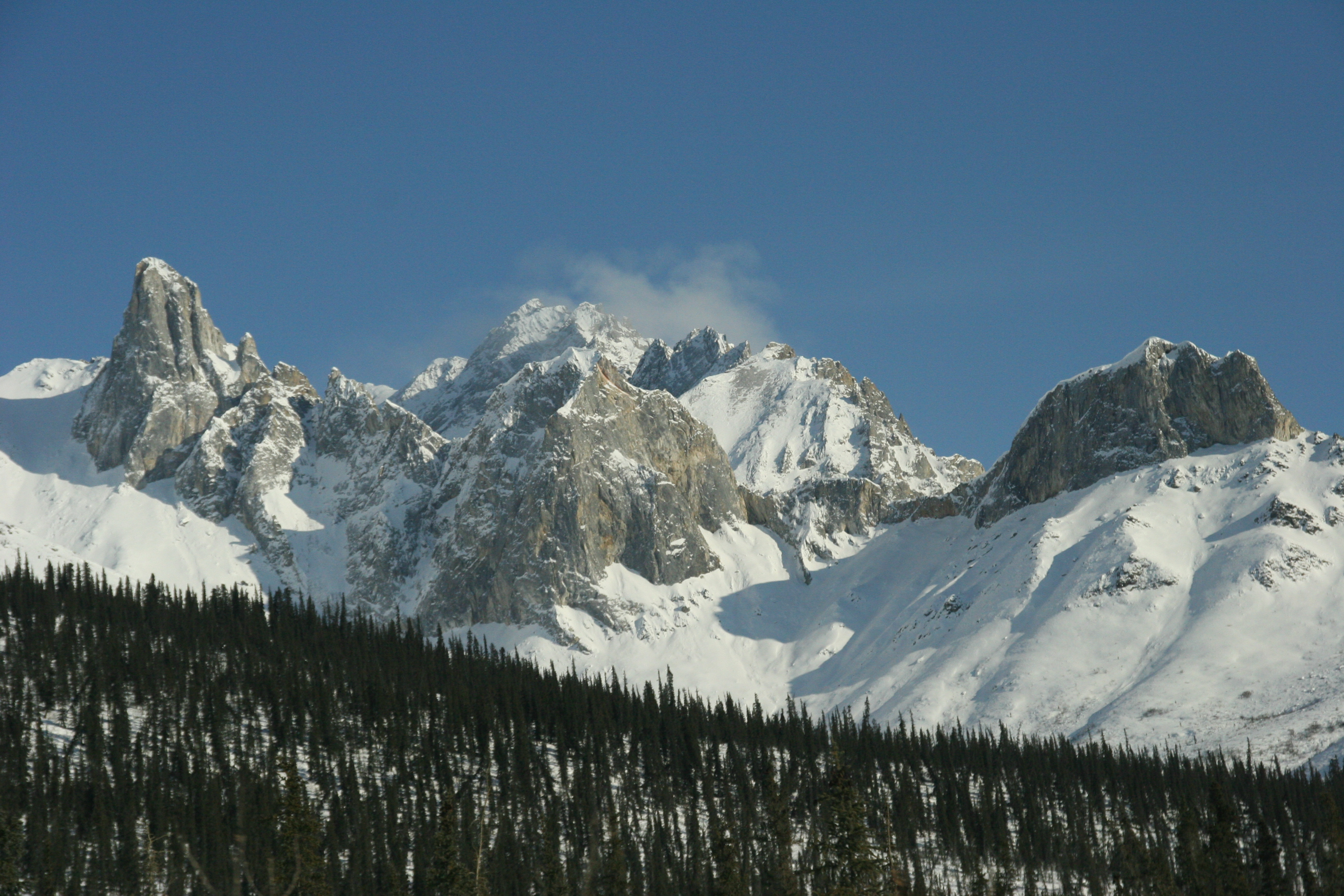 | |
| Alaska's Brooks Range |
On the face of it, this book doesn't seem to have a whole lot going for it. There are only a few moments of peril and drama, and just a sprinkling of humor. Marshall's descriptions of the people he meets and travels with are fairly one-dimensional. Mostly, the book is a chronological account of Marshall's hikes and boat trips, with the author spending a lot of time describing in detail the mountains and landscape he discovers. It seems like this should be dull.
But Marshall is such a likeable guy and his enthusiasm for nature is so genuine that you can't help but enjoy going along with him on his explorations. Before long, you're just as eager as Marshall to find out what is over the next ridge or around the next bend. The book's good maps help the reader follow Marshall's travels.
Marshall valued exploration for the sake of exploration and his plain-spoken opinions on the subject are refreshing. For example:
"There is something glorious in traveling beyond the ends of the earth, in cutting loose from the bonds of world-wide civilization. Such life holds a joy and an exhilaration which most explorers today cannot understand, with their radios and aeroplanes which make the remotest corners of the world just a few days or even hours away in distance. Modern mechanical ingenuity has brought many good things to the world, but in the long list of high values which it has ruined, one of the greatest is the value of isolation."
Or:
"As I see it, Peary's discovery of the North Pole, Amundsen's journey to the South Pole, Byrd's junketing in Antarctica, or the impending ascent of Mount Everest do not make the road of humanity as a whole the least bit happier. In fact, one could argue, the net result of these activities is to make mankind a little poorer because when an exploration is made there is that much less possibility left in the world for others to experience the joy of exploration in hitherto unknown regions. The justification, if one is needed, for present-day exploration, therefore is almost exclusively the selfish one of giving oneself the exhilaration of that most glorious of all pastimes, setting foot where no human being has ever trod before."
We are lucky that one of the first men to explore the Brooks Range was such an able writer as Robert Marshall, and that he so honestly shares the experience with us.
No comments:
Post a Comment